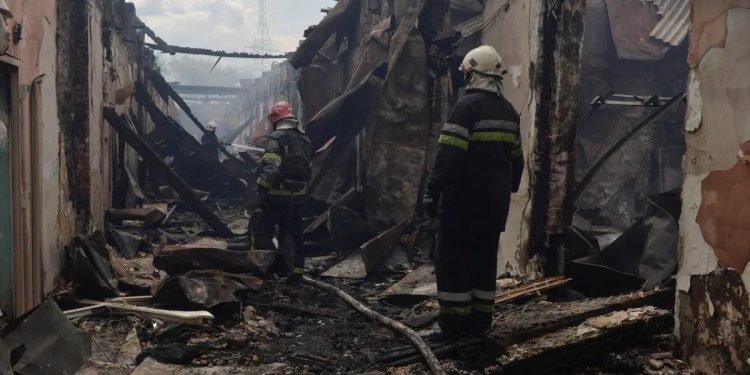Europe is caught between the devil and the deep sea. Russian President Vladimir Putin has turned out to be the devil. The prospect of a severe economic dislocation, a freezing winter a few months away and weakening of Europe’s fight against climate change because of a renewed use of coal-based energy is the deep sea. Putin has resorted to what Ukraine’s President Volodymyr Zelenskyy calls “an overt gas war” to force Europe to withdraw sanctions against Russia for the latter’s invasion of Ukraine. When he attacked Ukraine in February, Putin had calculated he would win quickly and the West would meekly surrender to his blatant dictatorial behaviour. But, Ukrainians stood up to the challenge and are still spiritedly defending their country against Russian aggression. This has forced Putin to use Europe’s reliance on Russian gas exports as a weapon to undermine Western solidarity, forcing it to lift sanctions and acquiesce to Moscow’s territorial greed. The more the resistance by Ukraine frustrates Russia’s design, the more Russia tries to blackmail Europe by cutting the flow of gas through the main east-west pipeline. The message to Europe from Moscow is loud and clear – be soft on the war and enjoy a warm winter with enough gas heating homes, or else, shiver during the freezing winter and suffer industrial breakdown for want of gas generated electricity.
As things are going out of control, European Union members have agreed to cut gas usage by 15 per cent as part of a phased move away from reliance on Russian supplies. But, there are chinks in the EU armour as some countries are opting out of the deal or vacillating fearing dire consequences due to reduction in the supply of Russian gas. For example, Hungary, the EU state close to Russia, has not signed the deal at all. Brussels, the EU headquarters, believes energy security will strengthen transnational collaboration and ensure political, economic and strategic integration. But, the reality is Russia’s decision to turn off the gas tap has already brought tensions between member states. While Spain has taken care to improve its infrastructure to help it diversify its energy supply, Germany has only increased its reliance on Russian gas through the 1,200 km-long Nord Stream 1 from the Russian coast near St Petersburg to north-eastern Germany. France will not be directly hit by Russia’s gas war since its power supplies are mostly nuclear, but President Emmanuel Macron is worried, as an advocate of European integration, about a wider threat to the eurozone if the German economy is damaged by soaring gas prices. The majority shareholder of Nord Stream 1 is the Russian state-owned company Gazprom. By the end of June, Germany was importing 26 per cent of its gas from Russia through Nord Stream 1. But using the alibi of overhauling a boiler, Gazprom cut gas deliveries by 75 per cent. In early July, it shut down Nord Stream 1 for 10 days. Though it partially reopened it in the third week of July, it soon announced the supply would taper off. This pushed up wholesale prices of gas in Europe which are now 450 per cent higher than they were during the corresponding period last year.
The whole Russian move appears well calculated. It declared war against Ukraine in February and did not immediately use its gas supply as a bargaining chip to ease sanctions by Europe. It waited for the next winter to set in so the need for gas would be direly felt and creating alternatives of building terminals for LNG (liquefied natural gas) and getting new sources would prove too costly and time-consuming.
Putin is using Russia’s gas muscles so effectively that Europe is fast becoming helpless against his manoeuvres. The weapon of sanctions is being blunted by Russia’s gas strategy.






































